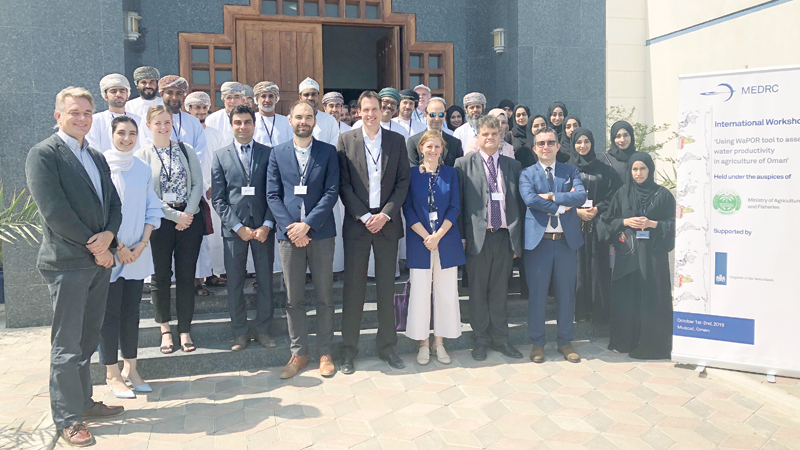

The Middle East Desalination Research Centre (MEDRC) organised a two-day workshop bringing internationally renowned experts together to discuss new systems that make it possible to measure water efficiency in the agriculture sector.
Agriculture, and especially irrigated agriculture, is the sector with by far the largest consumptive water use and water withdrawal. New technologies available use satellite data to calculate and monitor the productivity of water use in agriculture. Making this data available allows for the optimisation of irrigation systems and helps farmers achieve more reliable agricultural yields.
The workshop explored the impact of the WaPOR tool which has recently been developed by the Food and Agriculture Organization (FAO) and offered a unique opportunity for Omani water stakeholders to explore the potential use of this technology to assess water use in agriculture in an effort to improve efficiency. The open access online database helps farmers optimise irrigation in water-scarce countries by measuring the rate at which water evaporates and returns to the atmosphere. Using the data, the tool analyses water utilisation in farming systems, generating evidence about how it can be most productively used.
Speaking of the event, Ciarán Ó Cuinn, Center Director of MEDRC Water Research, said: “Our response to climate change, hunger and water stress demands innovating responses from agriculture. We need to get water smart. We need better solutions. We need to start harnessing technology that gives farmers, large scale producers, agencies and ministries access to sophisticated data to drive these solutions. That’s what this initiative is about.”
By gathering experts to discuss current best practice and the potential application of such high-tech tools, it is hoped that the workshop will contribute to the systematic monitoring of water productivity gaps and identify appropriate solutions for closing these gaps in Oman.
Oman Observer is now on the WhatsApp channel. Click here



